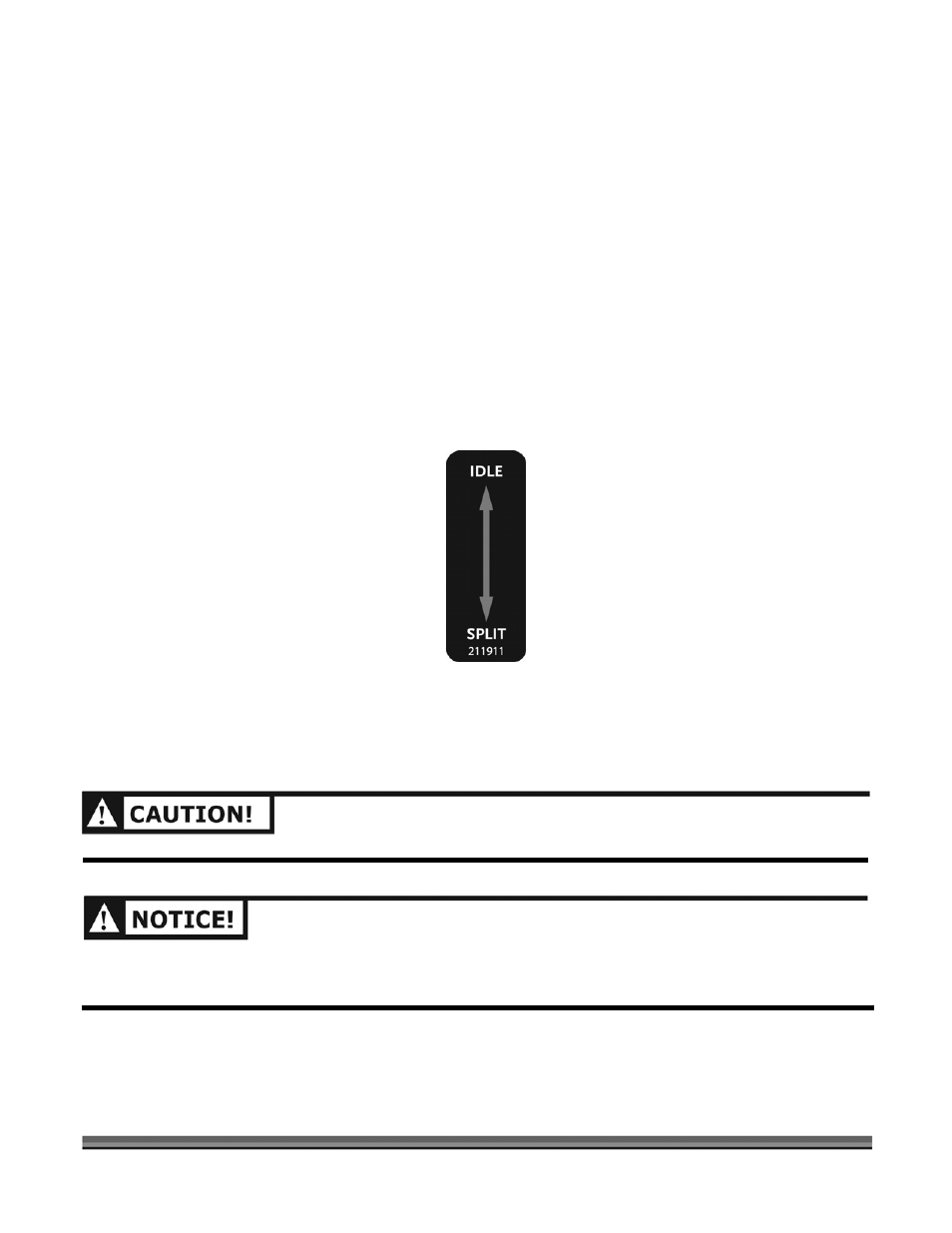DR Power Hydraulic 4-Ton (January 2008 - Present) User Manual
Page 20

16 WDS 4.4, 4-TON ELECTRIC/HYDRAULIC DR
®
WOOD SPLITTER
Figure 11
Operating the 4-TON ELECTRIC/HYDRAULIC DR WOOD SPLITTER
NOTE 1: The hydraulic control is a single handle valve called the Operating Handle. When the Electric Motor
Control Switch is ON, the Ram travels forward when you push the Operating Handle down. The Ram
will retract when you release the Operating Handle.
NOTE 2:
Before starting the splitting operation, the log Ram should be cycled 3 to 4 times back and forth (with
the Air Bleed Screw open). This will remove any air that may have mixed into the hydraulic fluid from
shipping and handling. See Step 3 on page 13 for the Air Bleed Screw Operation.
Tip:
In cold weather, cycle the Ram to warm up the hydraulic fluid. This will provide full power from the 4-TON
ELECTRIC/HYDRAULIC DR WOOD SPLITTER. See page 2 for hydraulic fluid information.
1. With a log properly loaded, and with the Air Bleed Screw open, turn the Electric Motor Control
Switch to ON and wait a few seconds as the motor creates pressure in the hydraulic pump.
NOTE: If the Electric Motor does not start, try pushing in the Reset Button (Figure 1 on page 10).
2. Push the Operating Handle down (Figure 11). The Ram will now compress the log against the
wedge, splitting the log.
3. Keep holding the Operating Handle down until the split pieces of the log fall away or the Ram has
reached the end of its stroke. When you have finished splitting a log, release the Operating Handle.
The Ram will retract to its start position.
MAKE SURE NOTHING INTERFERES WITH THE RAM WHILE IT RETRACTS.
IF THE LOG DOES NOT SPLIT IMMEDIATELY, DO NOT CONTINUE THE FORWARD THRUST OF THE
RAM FOR MORE THAN FIVE (5) SECONDS. THIS CAN DAMAGE THE SPLITTER. AFTER THE RAM HAS
RETRACTED, TRY REPOSITIONING THE LOG ON THE SPLITTER OR SET THE LOG ASIDE.
4. Stack the split wood as you work. This will provide a safer work area by keeping it uncluttered, avoiding
the danger of tripping or damaging the electrical cord.
